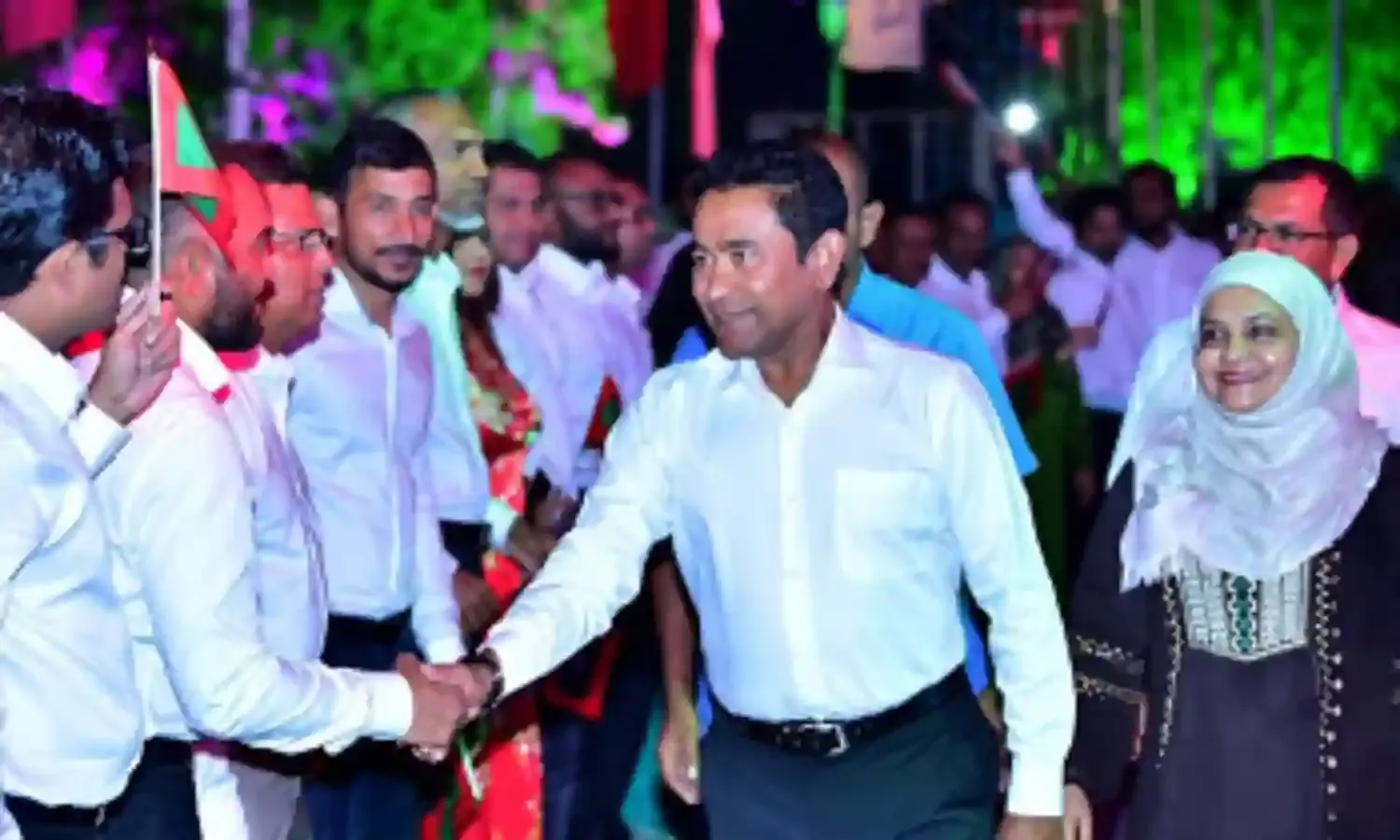Emergency Regulations in Maldives Only For Those Involved in “Attempted Coup”
Office of President Abdulla Yameen also said govt ready for talks with opposition

COLOMBO: The Office of the President of the Maldives said on Tuesday, that the State of Emergency restrictions apply only to those involved in the “attempted coup” and not to law abiding citizens or tourists.
The Office of President Abdulla Yameen also said that the government is ready for a dialogue with the opposition parties, “as this is essential to help restore normalcy in the Maldives.”
The statement affirmed the government’s “firm commitment to work closely with the international community to address the concerns that they might have.”
As per the amended rules of the Maldivian State of Emergency, as approved by Parliament on Tuesday, the existing restrictions will apply only to those who have allegedly indulged in illegal activities and the alleged plot to overthrow the established government, the Presidential Office said in a release.
Clarifying the position further, a source in the Presidential Office said that the State of Emergency regulations “shall not apply to otherwise law abiding residents of , or visitors to, the Maldives.”
He further said: “The attempted judicial coup has far reaching implications for the judiciary and Maldivian democracy. As investigations into those responsible are on-going, and as police are making fast strides in acquiring evidence and in understanding the full depth of the coup, the State of Emergency has been extended for thirty more days. But this would apply only to those allegedly complicit in the attempted coup.”
The source underlined the fact that “ the rights and liberties of ordinary citizens are not affected and they have full enjoyment of the tights guaranteed by law.”
In fact the Presidential Secretariat’s statement points out that “there will be no curfew, and general movements ,services and businesses, will not be affected.”
Giving the sequence of events leading to the adoption of the amended resolution on the extension of the State of Emergency, the President’s Office said that on Monday the National Security Committee of Parliament had recommended that the House accept the amendments proposed by the President as well as those proposed by it.
Thereafter, parliament voted to remove all restrictions on Art 100, which refers to the Removal of the President and the Vice President; Art 101 which refers to the Vote of Confidence in a member of the cabinet; Art 113 on the Jurisdiction of the Supreme Court; and Art 228 on the Removal from Office of the Prosecutor General.
Parliament voted the continuation of the State of Emergency for another 30 days but added that the restrictions envisaged would apply only to those who are allegedly involved in illegal activities and those involved in the plot to over throw the government.
Parliament also agreed to refer Section 38 of the Parliamentary Rules of Procedure which deals with matters requiring compliance by the public (like the State of Emergency regulations).
That will clarify whether, to get a matter like State of Emergency passed, a majority of members present and voting would do or whether it should get the support of the majority of the total membership of the House.
The government reaffirmed its “unwavering commitment to ensuring the safety and security of foreign nationals residing in the country, as well as those visiting the Maldives on vacation.”
The Government said that it takes note “with appreciation” the concerns being expressed by friends and partners in the international community regarding the declaration of the State of Emergency in the Maldives for a period of fifteen days on 5 February 2018 and subsequently extended by the Parliament for a further period of thirty days on 20 February 2018.
But the government appealed to the international community to check with it before forming opinions as the Maldives is undergoing a crisis involving the stability of the government and the security of the State.
“During this difficult time in the history of the nation, the Government also wishes to extend an invitation to all its international partners to clarify facts and policies prior to reaching assessments pertaining to these very serious security issues, complicated constitutional problems and sensitive internal differences.”
“It is important for friends and partners in the international community to stand with the Government and the people of the Maldives, and to refrain from any actions that could escalate an already delicate situation and derail the efforts being made to bring back normalcy in the Maldives,” the government said.
Justifying the extension of the State of Emergency, the statement said investigations are going on into the money trail allegedly used to bribe Supreme Court Justices, which need more time to reach a conclusion.
“The evidence received in the investigation illustrates how the Supreme Court’ verdict of February 1 had resulted in: the disruption of the functions of the executive power and the State institutions vested with specific mandates under the Constitution and the infringement of national security and public interest. It would have led to an undermining of the supremacy of the Constitution.”
“The Government is conscious of the gravity and consequences of the decision to declare the State of Emergency and assures the international community that the decision was taken as a last resort, after serious and exhaustive consideration, to ensure national security and constitutional order, to uphold the rule of law and to safeguard the peace and stability of the nation,” the government said .
However it assured that the State of Emergency will be lifted “as soon as the threats posed to national security are addressed satisfactorily.” .



